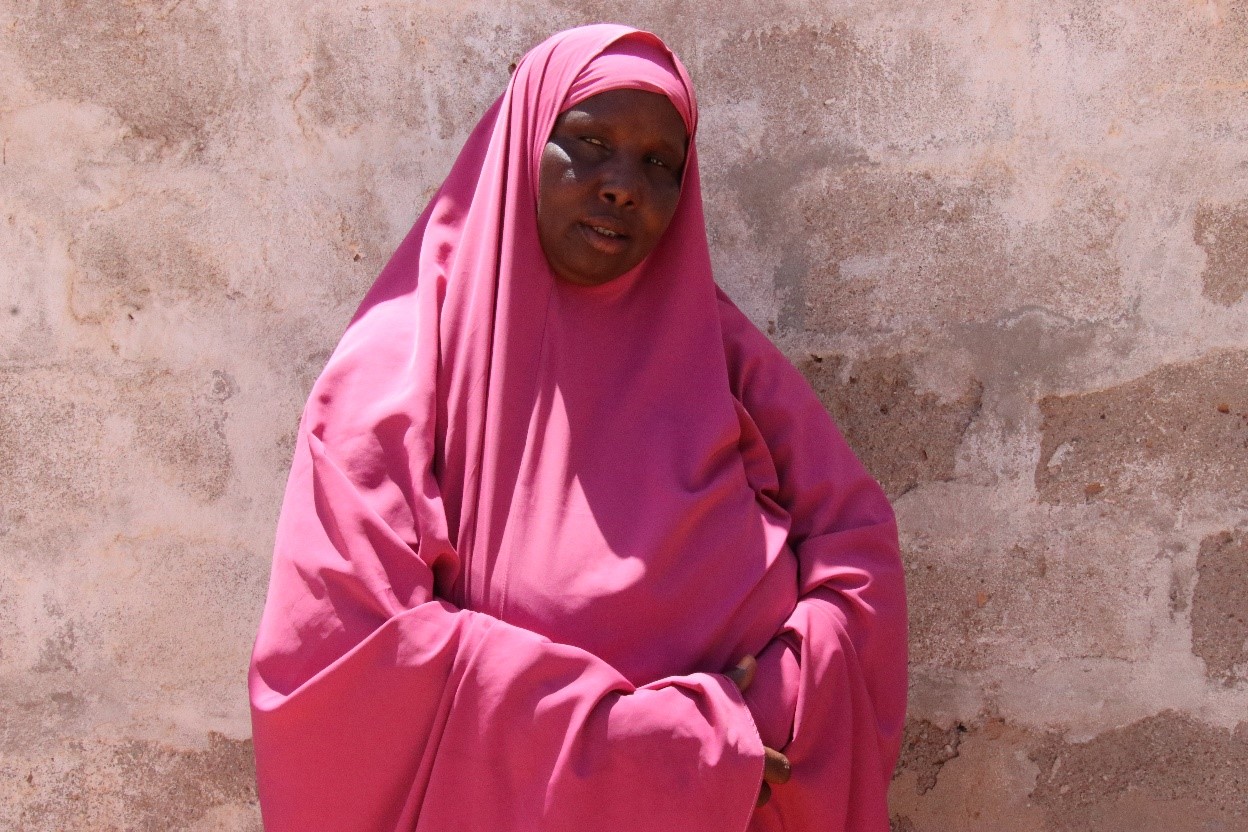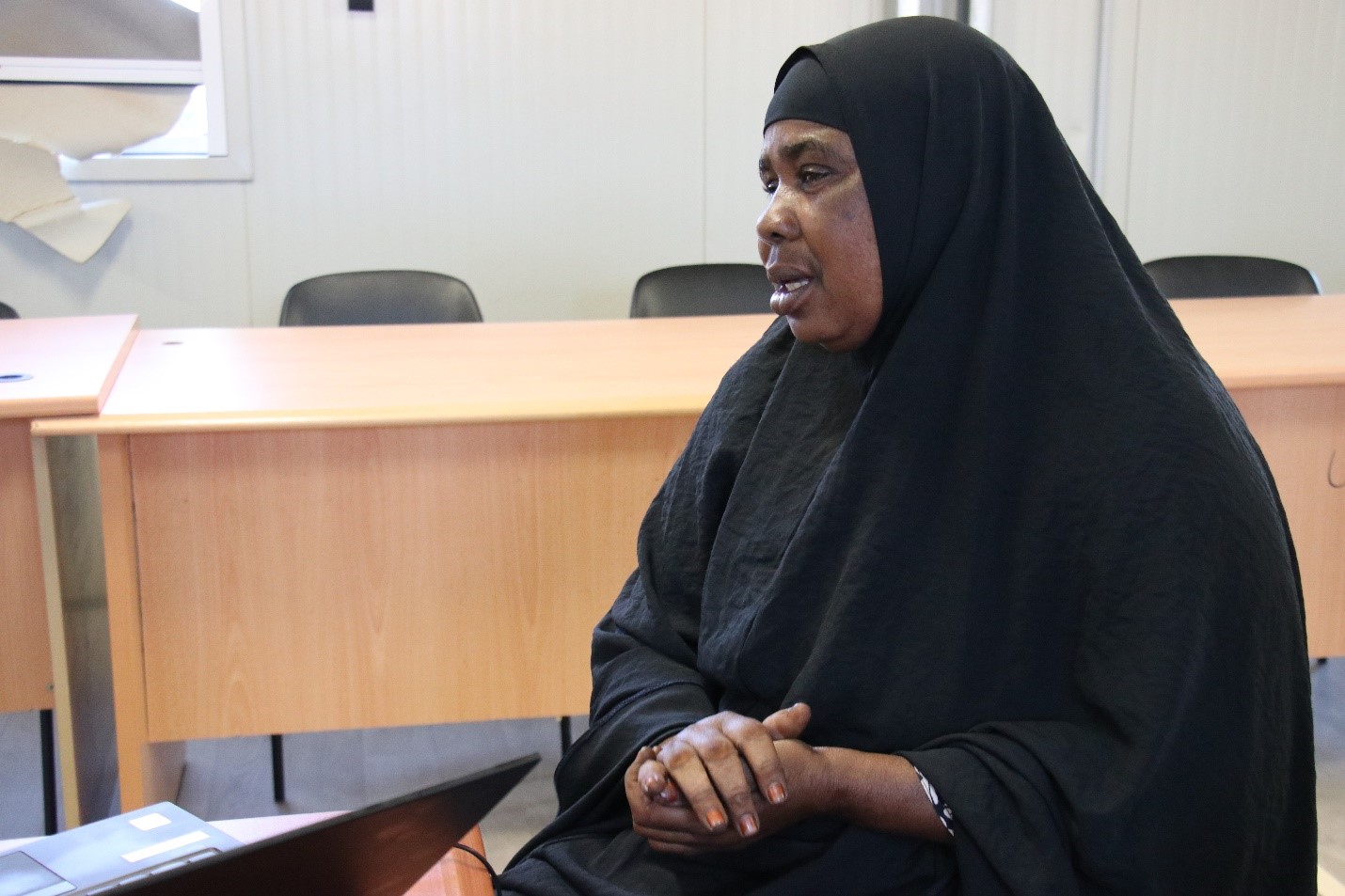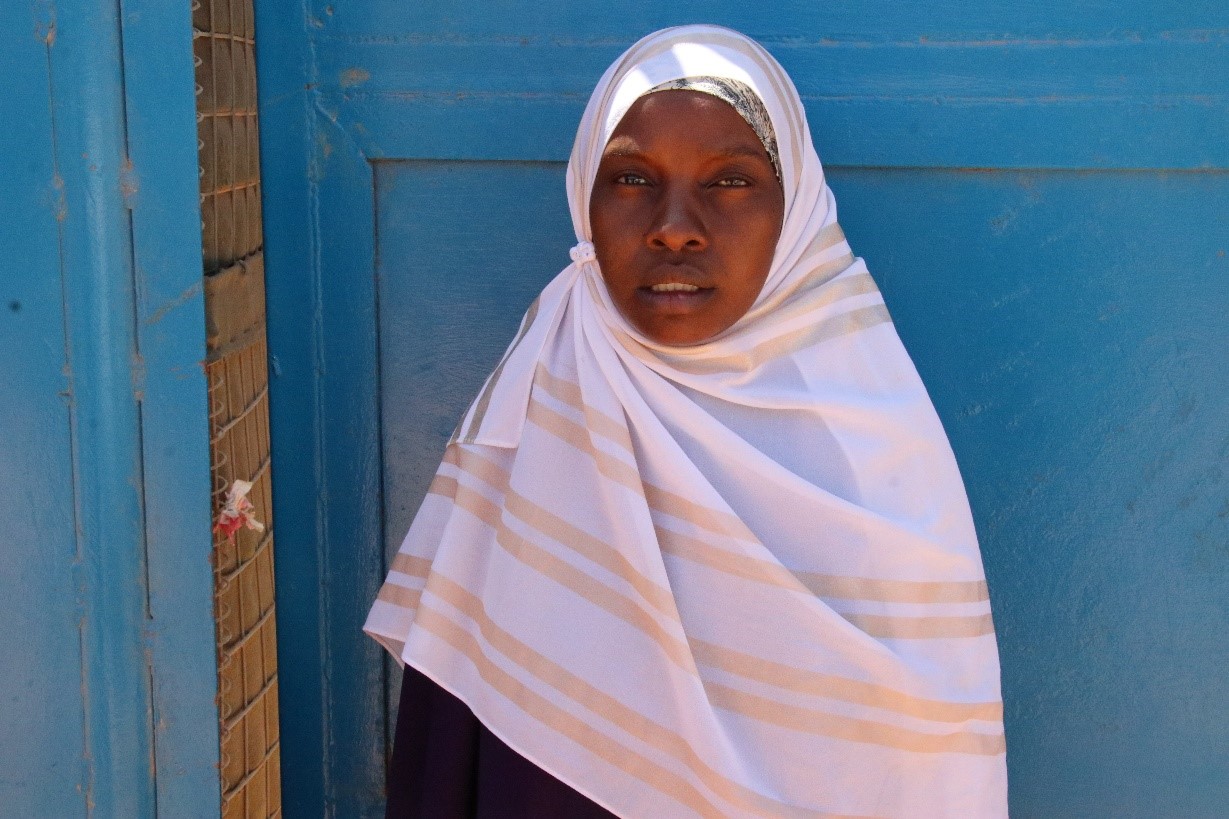From FGM survivors to Community Discussion Leaders on FGM: Stories of inspiration from Somalia
Date:
Up to 99 per cent of women in Somalia undergo female genital mutilation (FGM), a practice that leaves girls and women with many physical, sexual and psychological health and economic consequences. With support from the Government of Japan, UN Women Somalia is working with partners at national and sub-national levels to put an end to this harmful practice. Among most influential voices are Somali women who experienced or practiced FGM, openly speaking about their experiences and are now educating communities about the risks and consequences of FGM.
FGM is a grave violation of girls’ and women’s rights. It entails the ‘partial or total removal of the female external genitalia or other injury to female genital organs for non-medical reasons’ and is normally carried out between infancy and age 15. It has no health benefits, but the immediate and long-term health and related consequences are numerous: including infections and abnormal scarring, debilitating pain, childbirth complications or death.
Kaafiyo: “I feel motivated, and I feel empowered and honoured to serve my community"
Kaafiyo Abdi Farah, 55, was only 7 years old, when she underwent female genital mutilation. She remembers this as the most painful experience that she has ever had. Like many women in Somalia, Kaafiyo’s cut was Type III, infibulation, narrowing of the vaginal opening by creating a covering seal. The seal is formed by cutting and repositioning the inner or outer labia, with or without removal of the clitoris.
“They came to our house to cut me, when I was 7 years old only. It was a traumatic experience for me. Not only I was cut in the most horrific way, but also had to endure terrible pain and got burned as I was supposed to sit on the fire to heal. I had to do it for 21 days,” recalls Kaafiyo.
For Kaafiyo, this experience brought a lot of physical pain, but also great psychological consequences. It took her twenty-one days to recover at home, and her family used heat to make sure she recovered from the cutting and sewing. As she grew up, Kaafiyo experienced pain and difficulties during menstruation, during sexual intercourse and giving birth.
“I got married when I was 16, and after the first night I made an attempt of running away from my husband, as sexual intercourse brought me unbearable pain. I was made to return…my husband would put the radio on a high volume so that our neighbors could not hear my screams,” says Kaafiyo.
A mother to seven children, four of whom are girls, she went on to cut her daughters as well, although it was a painful experience for her. She decided not to perform FGM on her granddaughters.

When Kaafiyo learned about the UN Women and Ifrah Foundation programme and attended a training session, she learned about the consequences of FGM on girls and women and understood the implications. She decided to never practice FGM on her granddaughters. Moreover, she joined the project as a Community Discussion Leader on FGM and GBV. Trained by Ifrah Foundation, Kaafiyo is among many Community Discussion Leaders who work with communities, religious leaders and mothers to put an end to this practice in Kismayo, through their personal testimonies.
“Through teachings about the dangers of harmful cultural practices like FGM, I have learned a lot. I feel motivated, and I feel empowered and honoured to serve my community,” says Kaafiyo.
Ruqiyo: “I will never let this happen to my granddaughters”
“I remember, it was outside, and I was only 6 years old. They tied me to the tree, and two women were holding me tightly, my legs were apart. The cutter used a razor to cut me…I was not given any anesthesia, but was given popcorn, which I was supposed to chew during the procedure,” recalls Ruqiyo.
Just like Kaafiyo, Ruqiyo also had undergone through Type III – infibulation, which the most widely practiced version of FGM. A 46-year-old Ruqiyo has 9 children, 5 of whom are girls and 19 grandchildren.
Despite her personal painful experience, Ruqiyo let all her daughters be cut.
“This is what we are expected to do in Somalia. Our grandmothers did it, our mothers did it, so it was natural for me to it as well. I did it thinking that it is good for my daughters, for their future,” says Ruqiyo.

FGM is practiced for many reasons, but mainly it is believed to increase women’s marriageability. In a society where men want to marry virgins only, wanting a “pure” woman for themselves. If a woman is uncut, her virginity is questioned. Ruqiyo remembers how her neighbour married a woman who was not cut, and when he realized she was not cut, he got angry and made a hole in his garden, signaling that his wife was not a virgin. Another reason, as mentioned by local activists, is that it is believed to ensure marital fidelity.
Today, Ruqiyo is a Community Discussion Leader and works with mothers, FGM practitioners, men and boys, as well as religious leaders to raise awareness about FGM.
“I went through FGM, and I know about it well and can talk about it openly. I am also from the community, so women trust me. Slowly, slowly, we are changing their mindsets,” Ruqiyo says proudly, adding that the change should start from her. “I decided that I will not let this happen to my granddaughters.”
Amina, former FGM practitioner who became part of the solution in Somalia

Amina is a 35-year old mother of seven children. She was cut, and she was also a FGM practitioner and a traditional birth attendant.
With her own daughters, she performed the light version of FGM (the partial or total removal of the clitoral glans).
As a traditional birth attendant, she knows first-hand about increased risk of childbirth complications. Women experience difficult delivery, excessive bleeding, caesarean section, etc. In addition, the psychological impact of FGM is huge; girls are extremely traumatized.
This knowledge and experience help Amina in her work as FGM awareness campaigner in Kismayo, Somalia, where UN Women and Ifrah Foundation are working together to eradicate FGM with support from the Government of Japan.
“It is very important that we work with religious leaders – sheikhs – as they are very influential here. The issue is very sensitive as people here never talk about sex or sex organs. My profession and my knowledge help me reach hearts of people, and I am not ashamed of bringing up these issues. Every time I see parents saying they will not cut their daughters, I feel like I am doing a great job,” says Amina.
With support from the Government of Japan, UN Women in Somalia and its partner Ifrah Foundation conducted multi-media advocacy and community outreach activities targeting 1,000 women, men, boys, and girls to address underlying negative social norms and engaged 100 traditional elders and religious leaders in Somalia to lead 20 community dialogues in IDP, refugee, rural and host communities in Jubaland and South West States.
Community education, awareness raising and community engagement to change social norms is the cornerstone of the programme. The multi-media advocacy and community outreach activities reached 25,000 women, men, boys, and girls to address underlying negative social norms and attitudes that condone gender inequality and promote the role of men and boys as advocates for gender equality and the empowerment of women and girls.